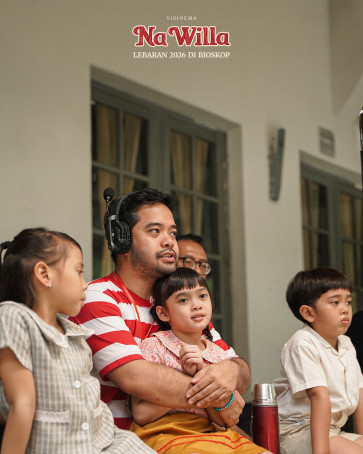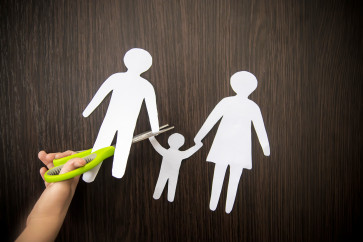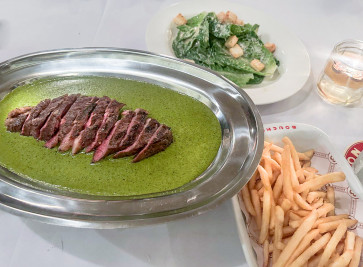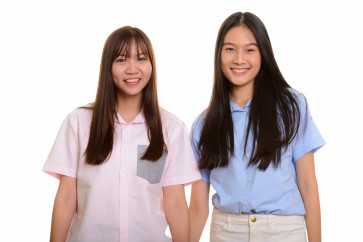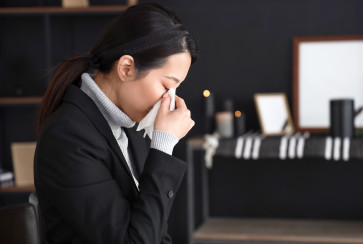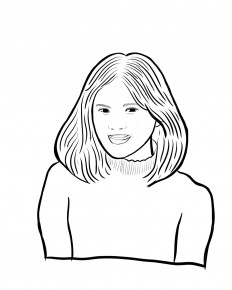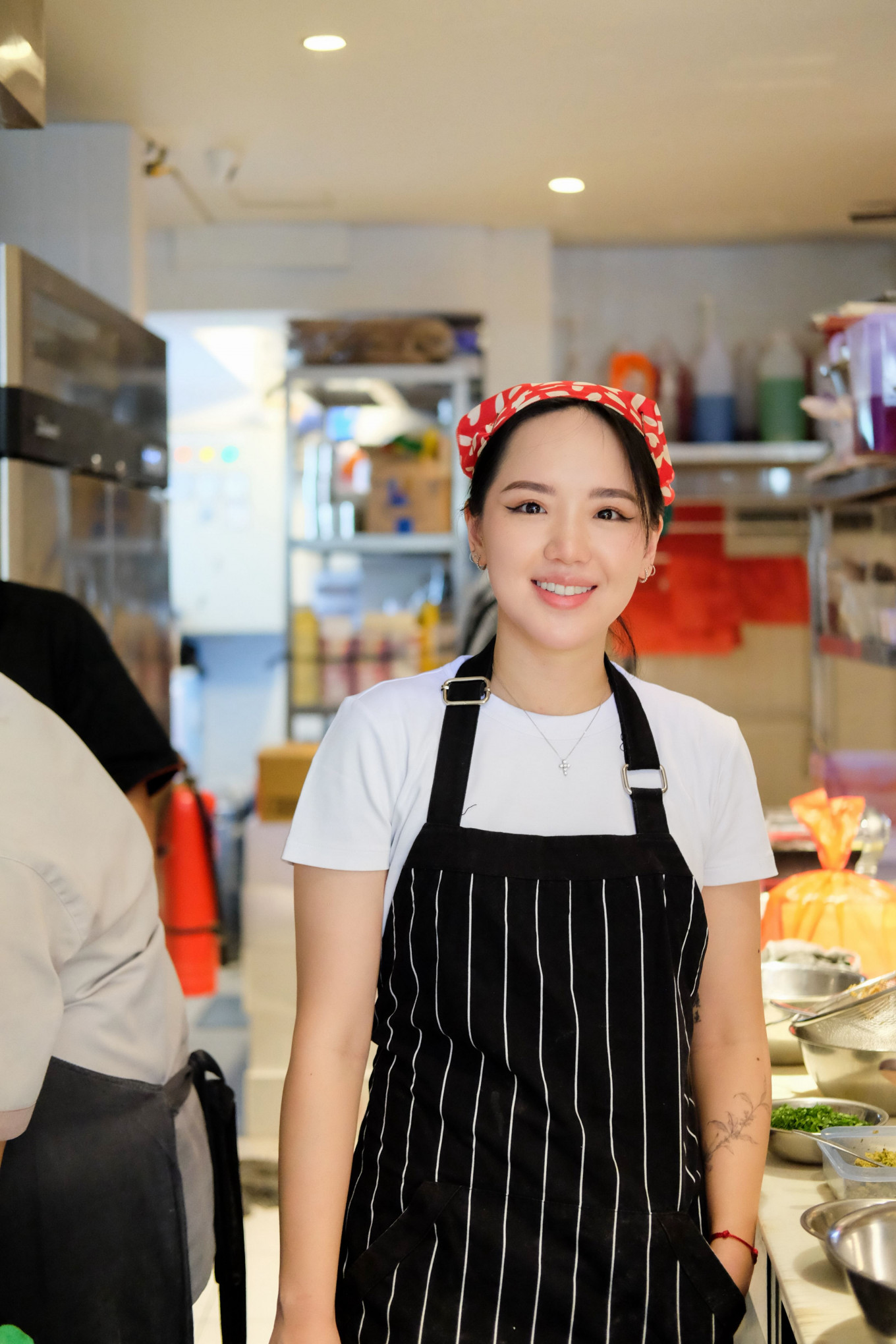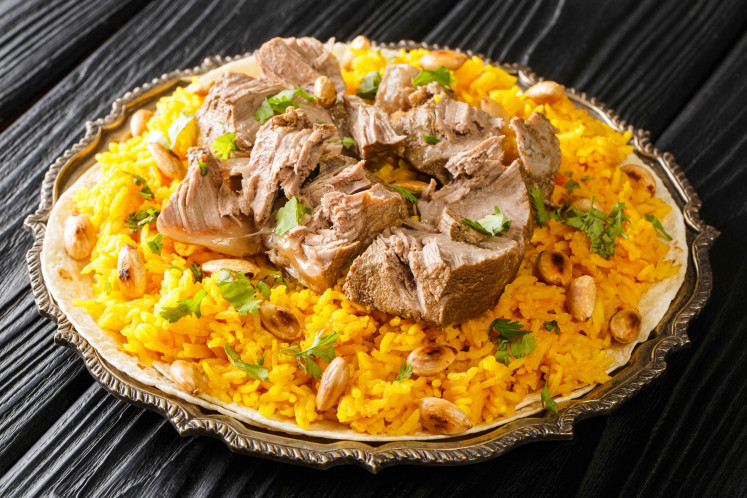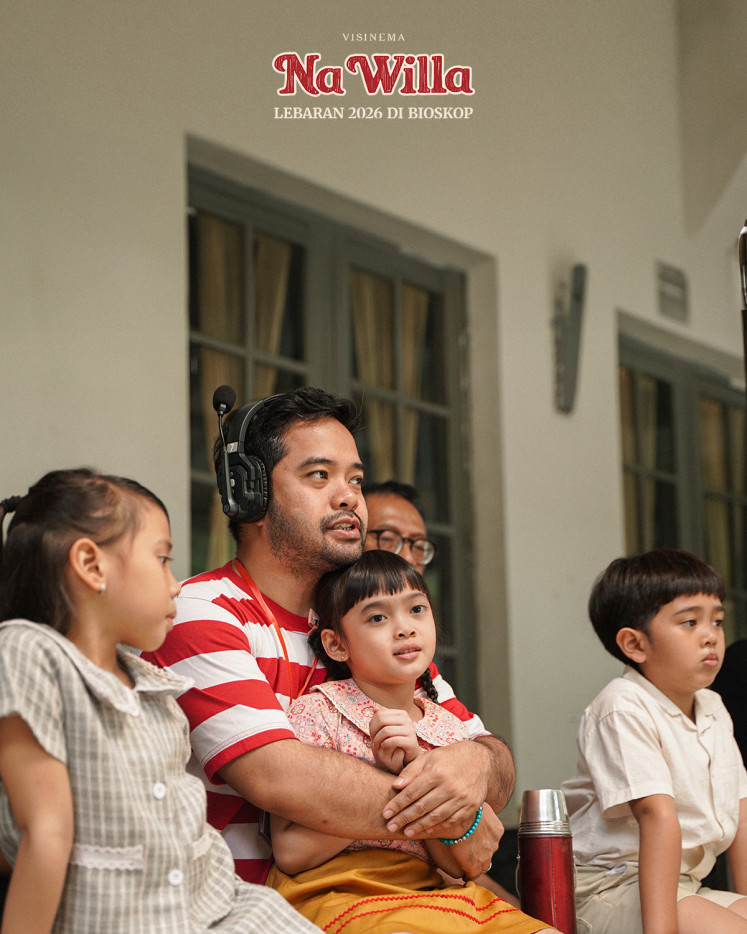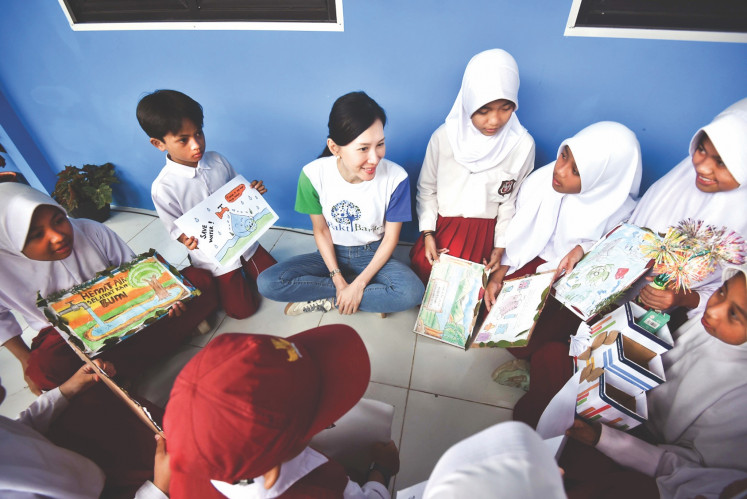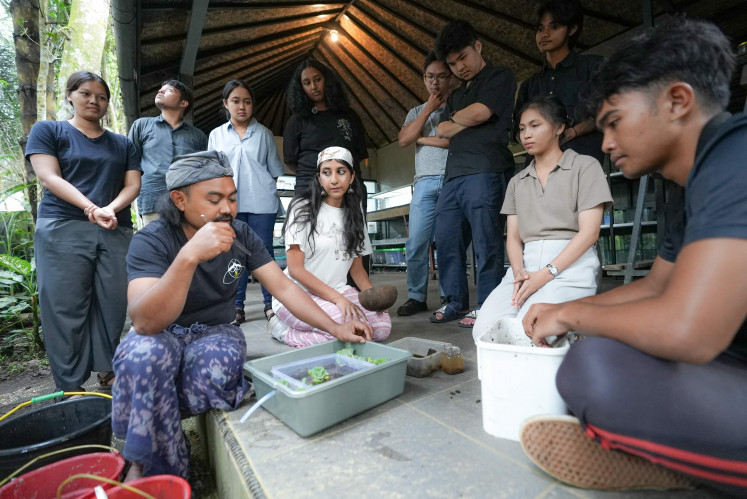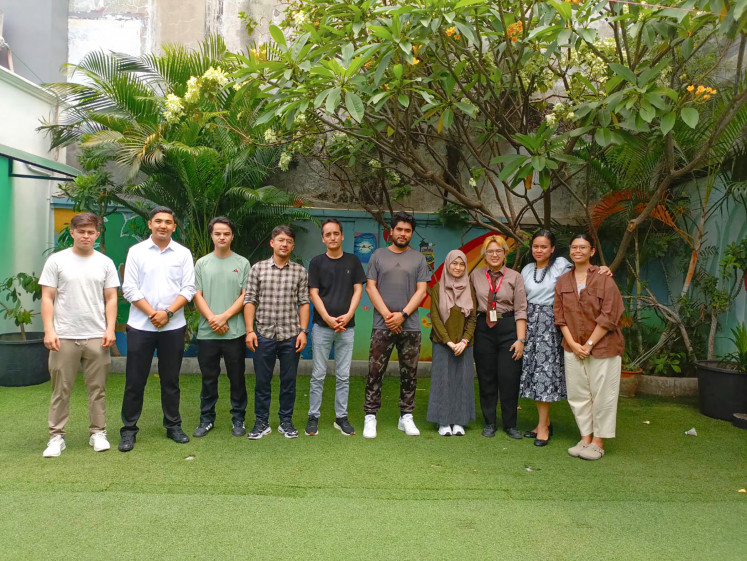Most of us show our support for the Palestinian struggle through boycotts, social media campaigns and demonstrations. Michelle Santoso chose a different path: She’s winning hearts through the warmth of the hearth.
Over a cup of coffee in her Kemang restaurant, she shares her unexpected journey into food activism after October 2023.
Michelle isn’t just a chef and restaurateur, she’s a storyteller and an advocate. Through social media and charity events, she shares recipes infused with culture, history and the enduring struggle of the Palestinian people.
“I didn’t set out to do food activism,” she says. “I just meant to talk about it through food because I’m a chef. And it turns out, food is a very powerful tool. It’s an expression of culture. Food can bridge differences.”
As we discuss the horrors in Gaza, I realize we’re speaking casually, like old friends gossiping. Without saying it outright, we seem to agree that to bring hard conversations to the table, we need to make them personal, relatable and profoundly human.
A journey through food

Thank you!
For signing up to our newsletter.
Please check your email for your newsletter subscription.
Michelle’s foray into food activism began unexpectedly, as Israel intensified its bombing of Gaza. She started posting videos of herself cooking Palestinian dishes, often in pajamas, narrating stories about the food’s history and the people behind the headlines.
Her philosophy is simple yet profound: People should be viewed with the same openness as food.
“When you sit and enjoy food, you don’t question where it came from or who made it. You ask, ‘Is it good? Does it taste good?’ With food, you don’t discriminate. So, why can’t we look at people the same way?”
Her approach resonated with audiences across platforms. Michelle now has 188,000 followers on Instagram (@ms_santoso), a leap from the few thousand she had before the war. On TikTok, her 44,800 followers have helped her content rack up over 750,000 likes.
Mansaf, one of the dishes Michelle featured, is the national dish of Jordan, home to almost 3.5 million Palestinians. (Shutterstock)
She’s had moments of disbelief, like when Bella Hadid liked one of her reels. She’s appeared in media interviews, collaborated with restaurants and Palestinian chefs and organized fundraisers to raise awareness and support for the cause.
Her most viral video, a take on Palestinian warak dawali (stuffed grape leaves), has 2.3 million views on Instagram. But of all the Palestinian dishes she’s explored, one holds a special place in her heart.
“Lamb qidreh. That dish converted me to liking lamb. I recently tried Jordanian mansaf, which is lamb cooked in preserved yogurt. It’s salty, and the yogurt seasons the lamb perfectly. You eat it with rice. It’s really good.”
Through dishes like these, Michelle believes food can bridge differences, spark curiosity about cultures and ultimately encourage understanding and empathy.
Facing backlash
Advocacy often invites criticism, but Michelle is unwavering.
“I still get backlash, especially from Zionists denying the Nakba, which is wild because it’s a historical fact,” she says. “That’s the funny thing. We would never deny the Holocaust because it’s real.”
The backlash, she says, usually comes from abroad since Indonesians tend to be well-informed about the conflict and generally support Palestine.
Fortunately, her activism hasn’t cost her business opportunities, but she has faced nitpicky criticism.
"With food, you don't discriminate. So, why can't we look at people the same way?" - Michelle Santoso
She recalls a collaboration with an Italian American restaurant featuring Palestinian dishes.
“They were like ‘none of the chefs are Palestinians’. I was like, ‘What’s the point?’ We’re in an Italian restaurant and the chef is Chinese. That’s a very weird argument,” she says, laughing.
Despite the noise, Michelle stays focused on her mission. She believes the Palestinian cause transcends geography and religion.
“Racism and xenophobia still exist, but they’ve gotten smarter in how to reframe it. The Palestinian struggle has always been about discrimination,” she says.
“After all, this is not a new concept. Indonesia was colonized not long ago. We could’ve ended up in the same boat. If the roles were reversed, who would speak up for us? If you had to pick a cause, injustice and independence should be on top of your list.”
One year later
One year and dozens of videos, charity dinners and fundraisers later, Michelle’s fight continues, as does the suffering in Gaza. Global attention wanes, and hope becomes harder to sustain.
“I’m pretty sure some of my friends are tired of it,” she shrugs.
“They’re like, ‘She’s still posting about this?’ And I’m like, yeah, because it’s still happening.”
But she admits the toll it’s taken.
“I hoped it would be over in a year. Then I remind myself it’s been 75 years of occupation. It’s not new for Palestinians, it’s only ‘new’ to the rest of the world,” she says.
“I’m gonna be very honest, even I have war fatigue. It’s very human to feel desensitized. […] Even I’m trying to keep hope alive because it’s starting to get to the point where I don’t know what to do with this anymore. I feel like I have said all I can say. I have done all I could possibly have done. But I think it’s also really, really unfair [to think this way as the war is still going on].”
While our conversation flowed with ease, we admit this wasn't typical coffee shop talk.
I had to ask: What can ordinary people like us (me and you) do to help?
“Stay informed, keep talking about it and seek the truth. Knowledge is king,” she says.
“Do you know Israel spent $150 million on media propaganda? That means whatever we are doing on the side, including as food activists, or anything we post on Instagram, is actually doing something to counter it. That says something.”
She emphasizes making the Gaza war personal.
“When we see kids losing their homes and parents, becoming orphans — as a mom, and with many of my friends being moms, we can’t help but think: What if it were our kids? That level of empathy and sympathy resonates with mothers all over the world. We all want the same thing: For our children to be safe.”
Michelle adds that pausing to say, “Wait, this doesn’t seem right,” is so important.
“Sparking curiosity is the first step toward change. It’s a question that ended segregation in the United States and one that, hopefully, can end the occupation too,” she says.
Adelia Anjani Putri, a communications consultant and former reporter, has found herself writing again. She’s also exploring a career shift that would let her pursue her passions for cooking and catsitting—ideally with a paycheck.





